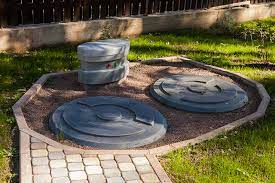Maintaining a healthy septic system is crucial for the longevity of your home’s wastewater management solution. Proper care is necessary to avoid costly repairs or even a system failure. To ensure your septic system runs smoothly throughout the year, it’s essential to understand how each season can impact it and take appropriate measures. This comprehensive guide will discuss seasonal septic system care, offering tips and insights to protect your investment.
Spring Is a Good Time to Check and Pump
Springtime is a time of rebirth when the snow melts and flowers bloom. It’s also a great opportunity to do some maintenance on your septic system. Make an appointment with septic maintenance fayetteville nc to have your system fully inspected. They will evaluate the state of the tank, look for damage or leaks, and make sure every part works as it should. If it has been a while since you pumped your septic tank, now is the perfect time to do it. Frequent pumping keeps sediments from building up and clogging your system, which could cause backups. Check for smells, squishy ground, or indications of water accumulating in your region. Avoid using too much water, especially when gardening or doing spring cleaning. Overflowing water might cause problems for your septic system.
In Summer Consider Your Water Use
The summertime can be particularly taxing on your septic system because of the increased temperatures and outdoor activities. Take into consideration adopting water-saving techniques, like replacing low-flow fixtures and repairing leaking faucets. Cutting back on water use keeps your septic tank from being overloaded. Steer clear of using excessive cleaning agents or harsh chemicals like bleach down your drains. These could throw off your septic tank’s helpful bacterial balance. Damage to your septic system can be caused by trees and vegetation sending their roots inside. To stop root infiltration, trim back any vegetation close to your drain field and septic tank. Look for weeds or overgrown grass in your drain field. Maintaining a clear space encourages appropriate drainage.
In Autumn Get Ready for Lower Temperatures
As fall ushers in a new season, it’s a great opportunity to get your septic system ready for the next winter. Leaves and other debris should not be near your septic system. Debris buildup can obstruct vents and prevent adequate ventilation. To avoid freezing during the winter, make sure your pipes and septic tank are sufficiently insulated. Inadequate insulation may cause expensive harm. Check for damage or cracks in your pipes and septic tank before the winter weather arrives. You may divert surface water and roof gutters from your drain field during intense rainfall to avoid oversaturation.
In Winter Prevent Freezing and Stress on the System
Septic systems have significant difficulties throughout the winter since the bitter cold can be especially hard on the system’s parts. Make sure the insulation around your septic tank is adequate, and if needed, install a heating element. This keeps the system from freezing and keeps it running. Use less water in the winter to lighten the strain on your septic system. To avoid frozen pipes, replace any dripping faucets as soon as possible, and think about installing a space heater in your bathroom. Even in the winter, keep up with the schedule of routine inspections. An expert can see any such problems before they worsen. Keep the area around your septic system clear of snow and ice to make access easier for maintenance professionals.
In summary
Septic systems are expensive investments that need to be maintained year-round. You can make sure that your wastewater management system is in good condition, save expensive repairs, and ensure that your system runs smoothly by adhering to these seasonal septic system care suggestions. Consult septic pumping souderton pa when necessary for expert advice and upkeep. You’ll safeguard the environment, your finances, and your house by doing this.
